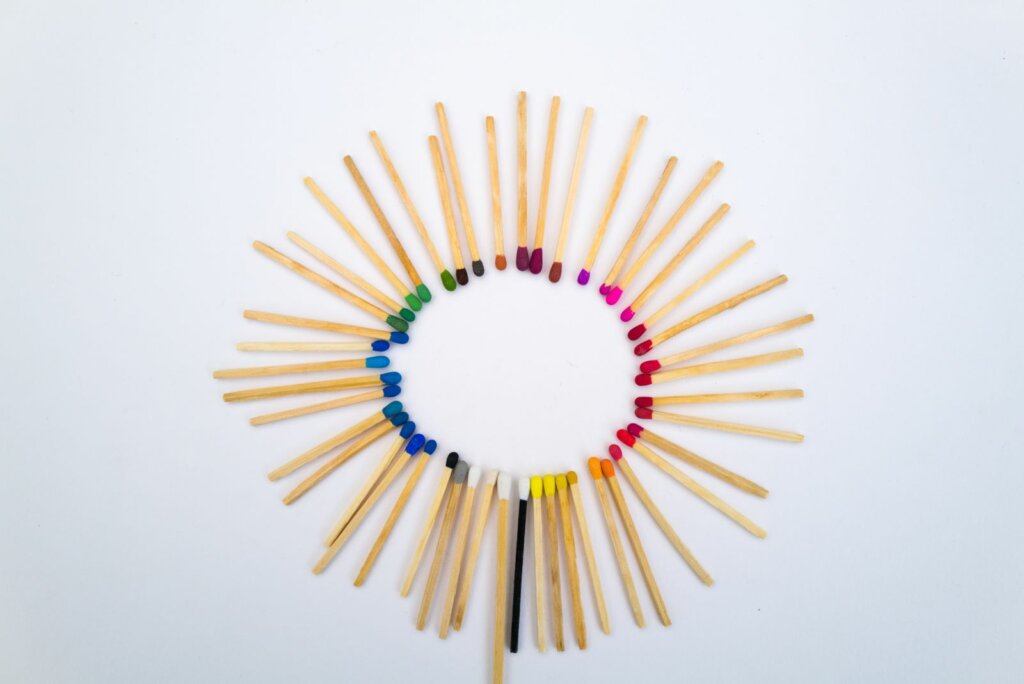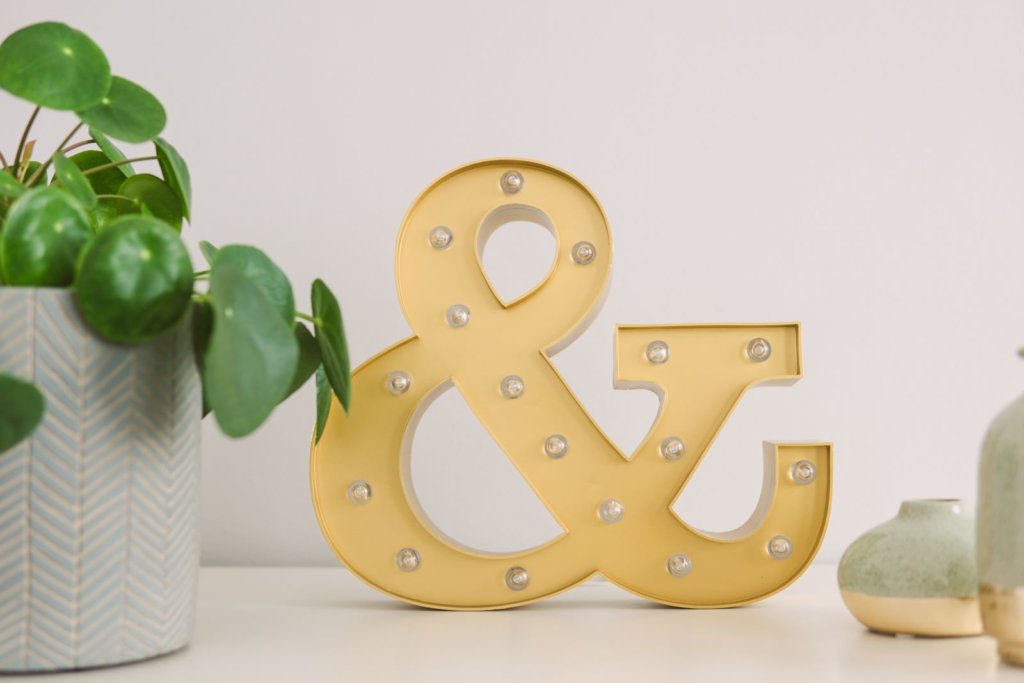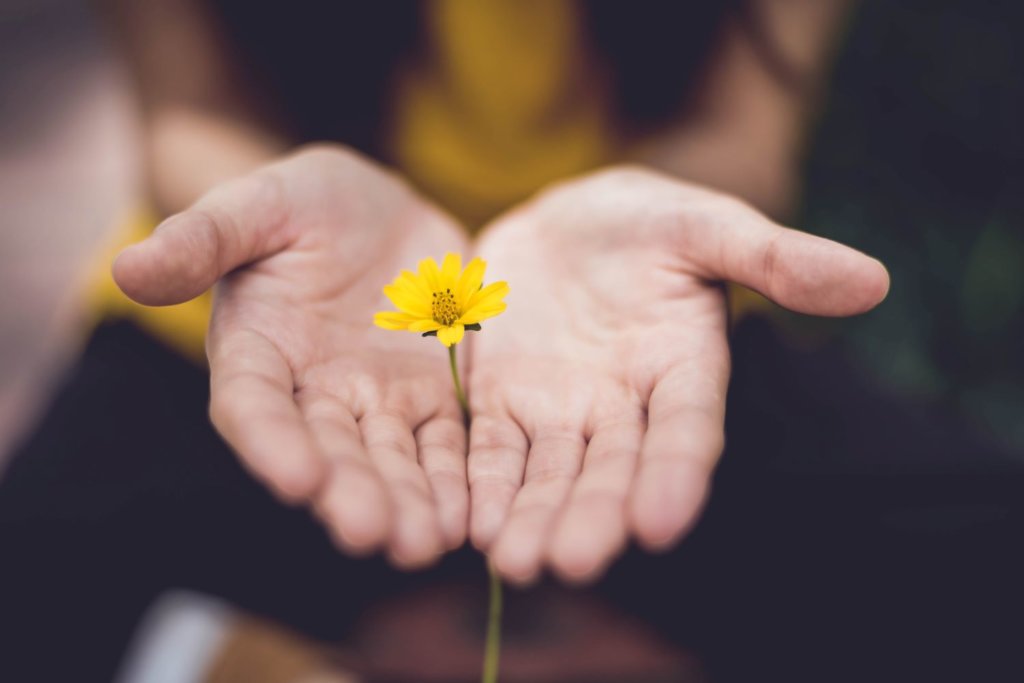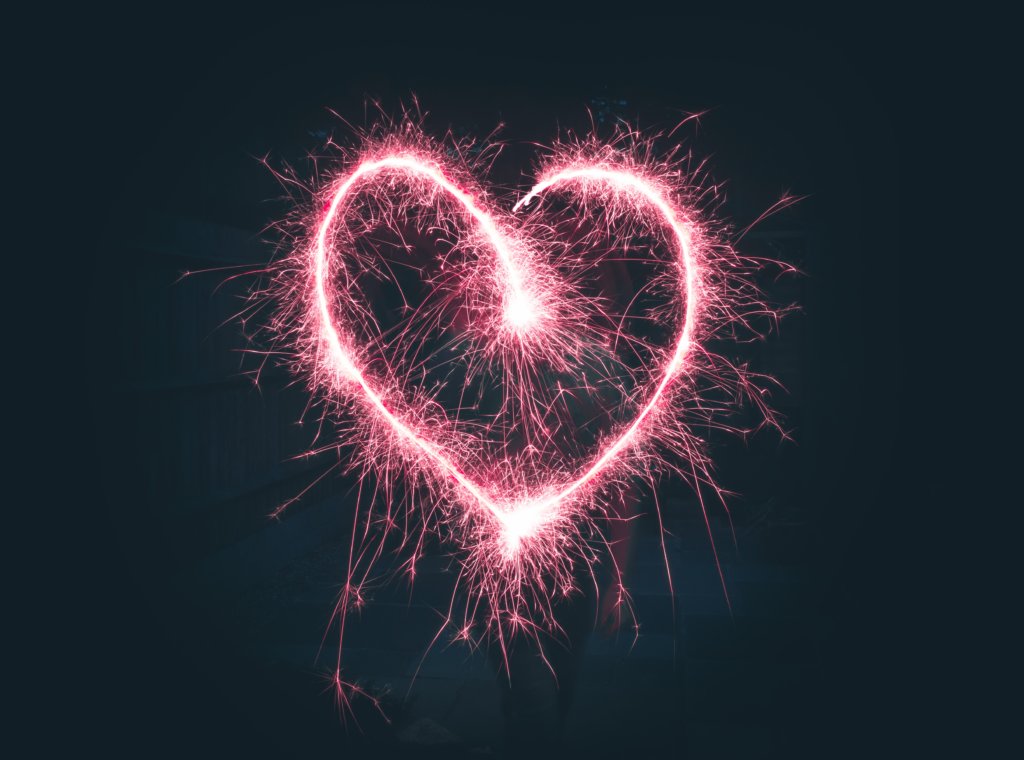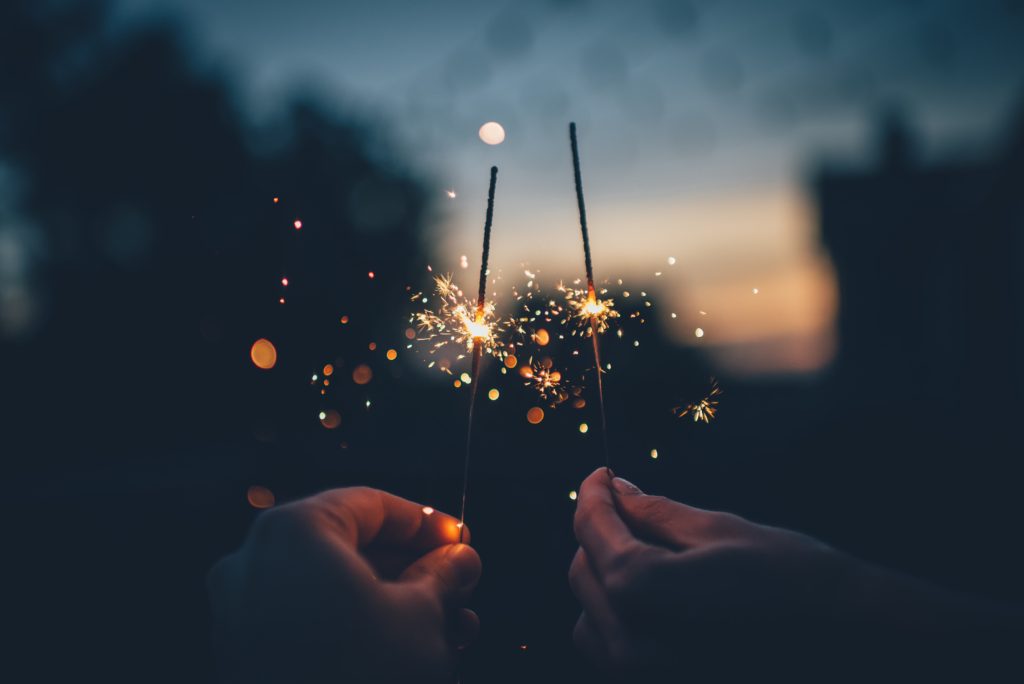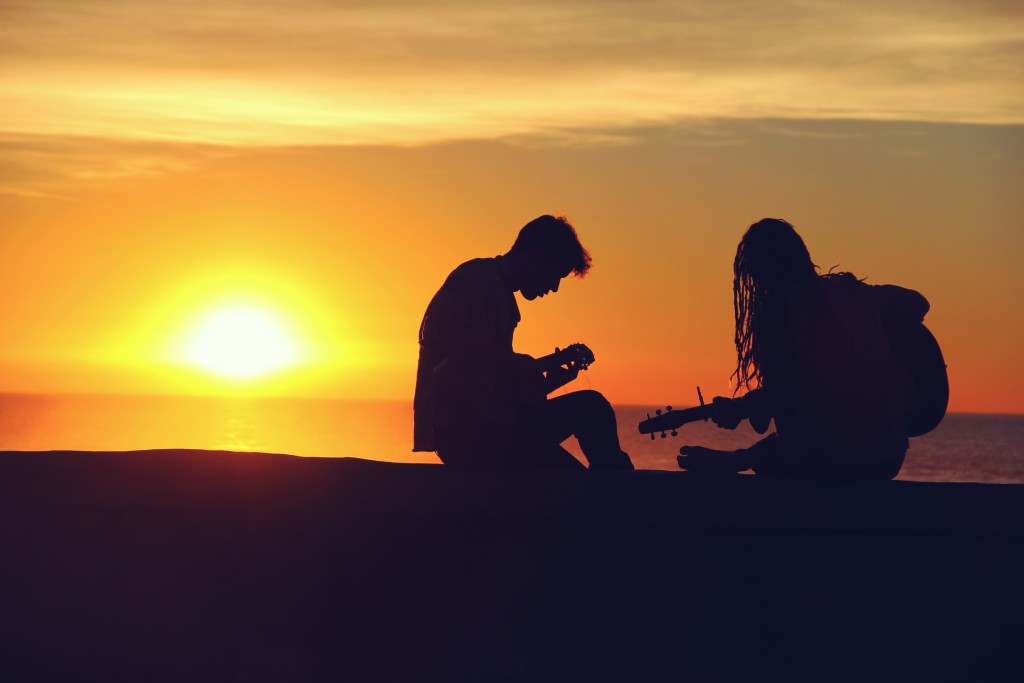When I was 7, there was a boy in my first-grade class that I didn’t like. I don’t remember why, his name, face, or any identifying features, but what’s seared into my brain is how I treated him on Valentine’s Day. It’s standard practice to give all the kids in your class a Valentine and for this boy, I decided to let him know how I really felt about him. I took out a piece of notebook paper and wrote, “I hate you, I hate you, I hate you, I hate you, I hate you,” until I ran out of space. But that didn’t feel like enough so I asked my brother, “What’s a word that means over and over again?” and he responded, “Et cetera,” which of course I didn’t know how to spell.
So at the end of a page filled with “I hate yous” I tacked on an “etc.” I tucked the paper into an envelope and signed my name so he would know it was from me. The next day I watched his face crumple reading my “Valentine.” He showed the piece of paper to our teacher and she said, “I’m sure she didn’t mean it.” I remember feeling mixed emotions because I did mean it. I did hate him but at the same time, I didn’t expect him to respond the way he did. In my mind, he was a monster, incapable of emotions, but seeing how hurt he was gut-punched me.
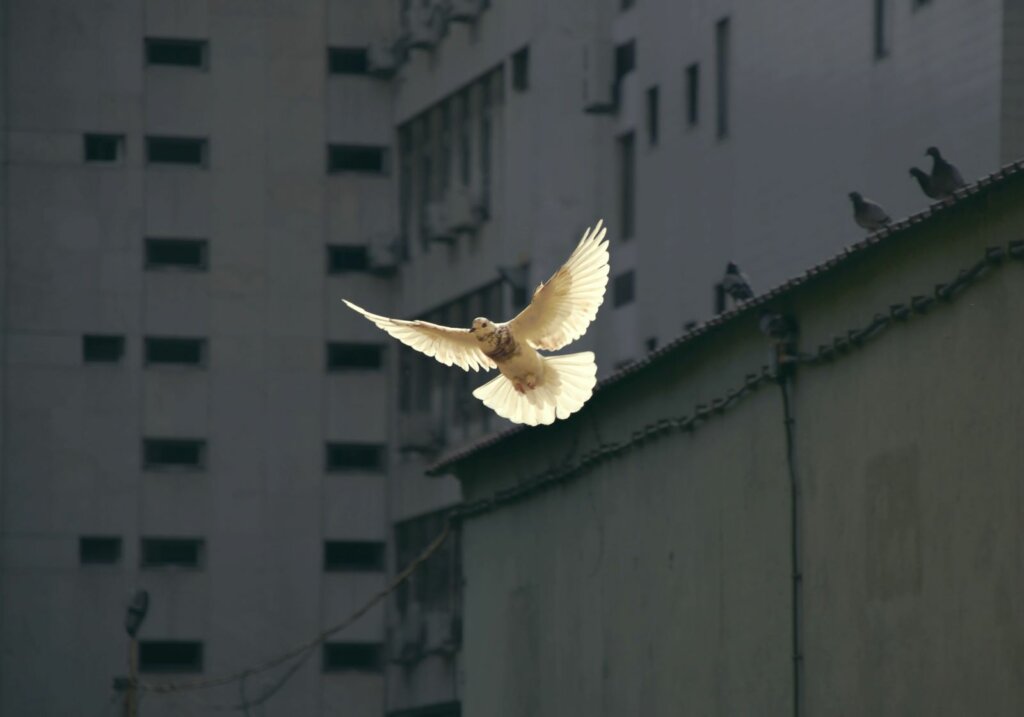
Peace is possible if we do the internal work. Photo by Sunguk Kim on Unsplash
As a 7-year-old, I wasn’t thinking about how this little boy would feel. All that mattered was expressing how I felt because I was the wronged party. He was mean to me. What I did to this little boy is what some people are doing now – they are only thinking about how they feel, not the impact their words will have on other people. What I also did to this boy is I dehumanized him. As a 7-year-old, there weren’t dangerous consequences to my perception but that’s not true for adults.
When you perceive a human being as an animal or a monster that must be destroyed, you will put them in a cage. You will bomb the crap out of their homeland. You will decapitate them and their family. You will do whatever it takes to show them how you feel without considering how they feel.
It’s worth mentioning that balance is important. There is such a thing as considering someone else’s feelings too much and that’s known as codependence. By and large though, we’re suffering from a lack of empathy, not too much of it. As a highly sensitive person, I’ve been crying about the ugliness in the world. It feels not great to read people are saying, “Gas the Jews!” and “Wipe Gaza off the face of the Earth!” Have we forgotten, just like I did, that words hurt? They don’t leave a visible mark like bruises do but can ring in your ears long after a physical injury has healed.
What do we do about this? How can we remember each other’s humanity when it feels so very challenging? There’s a Nonviolent Communication (NVC) exercise called simply “the exercise” that is so powerful for this. It’s a way to shift your inner landscape closer to connection, compassion, and peace. Any movement in that direction is a win so don’t worry if you’re not suddenly filled with peace after doing it.
I know it’s easy to let anger fuel us, I’m guilty of that myself, but if you have even a modicum of a desire to create a peaceful planet that goes beyond the limits of small social identities, I encourage you to do the exercise I linked to. Not only that, share it with your friends. As humans, we don’t have to give in to our baser instincts. There is another way. We can move toward peace but it requires more than a ceasefire. It requires us to view each other differently.
I dream of a world where we recognize how dangerous it is to only think about how we feel and not how others feel. A world where we don’t let anger and hatred fuel us. A world where we do the work to see others as human beings no matter how hard it is. A world where we all work together to move toward peace.
Another world is not only possible, it’s probable.
I, like many, have a lot of feelings about the smattering of recent U.S. Supreme Court decisions. And then there are the bills targeting the LGBTQIA+ community. The trend I’m noticing is more divisiveness, more separation, and more hate, frankly. Is this what human beings are destined for? Are we doomed to splinter off into smaller and smaller groups and engage in constant “us versus them” culture wars?
Maybe yes, maybe no but according to neuroscience, our brains are wired for connection and cooperation. Neuroscientist Matthew D. Lieberman, director of UCLA’s Social Cognitive Neuroscience Lab wrote a book called Social: Why Our Brains are Wired to Connect. He says, “To the extent that we can characterize evolution as designing our modern brains, this is what our brains were wired for: reaching out to and interacting with others. These are design features, not flaws. These social adaptations are central to making us the most successful species on earth.”
There’s also a study out of Emory University led by Gregory Berns who learned that when pairs of volunteers cooperated with one another, the reward circuits of the brain were activated. These are the same regions that are activated by drugs. The activation happened only when paired with a human – when the study participants were paired with a computer, they didn’t have the same response.
Volunteers were hooked up to an fMRI scanner and invited to play the “Prisoner’s Dilemma” game. Each volunteer pressed a button to indicate when they were ready to play, and then each simultaneously pushed another button to indicate if they wished to cooperate with, or betray, the other player.
The most common outcome was volunteers mutually cooperated with one another. Berns suggests people are hard-wired to cooperate because the brain associates cooperation with reward. Others are quick to point out that correlation is not causation but I’m inclined to agree with Berns because regardless of whether it’s due to our brains or something else, we want to connect with other people. We are wired for oneness.
What so often gets in the way is exactly what we’re seeing now: socio-sentiment. Socio-sentiment means loyalty to a particular social group to the exclusion of other groups. You already know what a world dominated by socio-sentiment looks like – we’re living in it. What’s the solution?
My spiritual teacher says, “To liberate society from this unbearable situation, consciousness will have to be aroused among the people; their eyes will have to be opened by knowledge. Let them understand the what’s, the why’s, and the where’s. Thus, study is essential, very essential.”
In other words, biologically, we want to connect with others, we’re made for connection, and what’s getting in the way is cultural conditioning that says this group is good and this group is bad. We all do this. The challenge then is to see every person as a human being, not a label. Personally, I do this by practicing empathy and guessing what someone else is feeling and needing. And when I do, I feel even more connected. It’s almost as if my brain is wired for oneness and spurring me on.
I dream of a world where we promote unity instead of division. A world where we recognize we are all humans with the same feelings and needs. A world where we stop propagating socio-sentiment and instead recognize we’re all in the same group. A world where we remember we are wired for oneness.
Another world is not only possible, it’s probable.
My friend Kat Nadel, a Nonviolent Communication (NVC) facilitator, mentioned she’s writing a blog about eight things NOT to say to Ukrainians right now. One of those things is including the words “at least” anywhere in your response. For instance, if a Ukrainian says, “My 12-year-old niece had to travel by herself to Romania and now she’s sheltering at a refugee camp all alone,” and you say, “That’s terrible! At least she’s safe.”
Saying “at least” is discounting the experience, feelings, and perspective of the person sharing. “At least” never makes anyone feel better. It’s not connective, it’s not empathic. I know we’re encouraged to look on the bright side of things, to be grateful, and I agree with those practices, BUT not at the expense of emotional connection. And that’s what saying “at least” does. It puts distance between you and whoever is sharing.
We have a name for this practice: toxic positivity. It’s “dismissing negative emotions and responding to distress with false reassurances rather than empathy,” according to UW Medicine. “It comes from feeling uncomfortable with negative emotions. It is often well-intentioned but can cause alienation and a feeling of disconnection.”
Yep. Sure does. It’s also interesting for me to realize that not only do we “at least” other people, we also “at least” ourselves. I’ve done that for the past few weeks. Whenever I’ve been irritated or concerned about something – my shoulder hurting, waiting on money from clients, wishing I wasn’t so tired, etc. – I’ve said to myself, “Well at least I’m not in Ukraine.” It’s true, I’m not in Ukraine, but that doesn’t make the pain I feel in my shoulder dissipate. Instead, I feel bad that I feel bad.
The thinking goes, “I ‘shouldn’t’ feel what I’m feeling because other people have it so much worse.” And yes, they do, but why does it have to be a competition? Why can’t I feel heartbroken, worried, and shocked about the situation in Ukraine while also feeling dismayed, sad, and concerned about my shoulder? I can! Both can be true!
The empathic response to both myself and others is to say, “I hear you. It sounds like you feel _____. Do you have a need for _____?” And that’s it. No fixing, no changing, no pitying, just presence to what is alive both in myself and in others. This is so very hard but it seems to me what we all need more of is true connection. We need true witnessing of someone else’s pain as well as our own. Let the pain, the feelings, all of it, be there because this is what it means to be alive. I can’t speak for everyone, but I know I try to inoculate myself from pain, from hardship. It’s my dream to have an easy, cushy life but, um, that’s not feasible.
Even the uber-wealthy, the people who have every material object they can desire, are not inoculated from pain or hardship. Even for them, divorce happens, death happens. To be alive means to endure something you don’t enjoy. It just does. And instead of turning away from the pain or engaging in toxic positivity, the best thing we can do for ourselves is to stay with it. To cry about people fleeing Ukraine in droves. To worry about rising gas prices. And to say “ow” when our shoulder hurts.
I dream of a world where we meet each other with empathy, not toxic positivity. A world where we understand while someone will always have a worse situation, that doesn’t change our situation. A world where we realize we can feel upset about events in the world as well as sad about occurrences in our own lives. A world where we remember both can be true.
Another world is not only possible, it’s probable.
There’s a show on Netflix with teenagers that each have one magical power. One of the young women has the superpower of empathy. I feel incredulous whenever I think about it. “What?!? Who would write in empathy as a superpower?” I say this as an empath and a highly sensitive person.
Empaths sense subtle energy and absorb it from other people and environments into their bodies. Scientifically speaking, they have hyperresponsive mirror neurons so they deeply resonate with other people’s feelings. For instance, this summer as wildfires raged throughout California, I didn’t sleep well. As soon as the fires were mostly contained, I started sleeping better. It’s complicated because I had my personal worry about the fires, but it was amplified by everyone else’s worry.
A highly sensitive person, or HSP, is someone who has a low threshold for stimulation, needs alone time, is sensitive to light, sound, and smell, and has an aversion to large groups. It also takes HSPs longer to wind down after a busy day because their ability to transition from high stimulation to low stimulation is slower. If you’re interested in determining whether you’re an HSP, you can take a self-assessment test. In case you’re wondering, I answer “yes” to every single question.
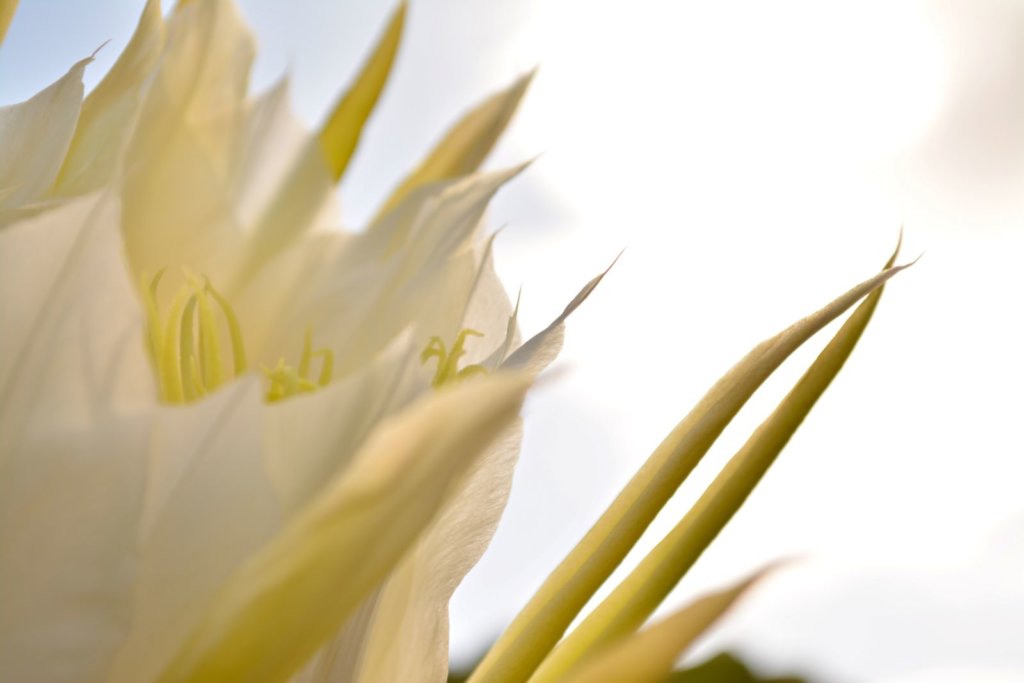
This came up when I searched for “sensitive.” Photo by Ermelinda Martín on Unsplash
It turns out high sensitivity affects about 20% of the population. It’s a genetic trait and it’s found not only in humans, but species like primates, dogs, goats, rats, and elk, to name a few. High sensitivity helps the evolution of each species because the highly sensitive ones more easily pick up on changes in the environment that are crucial for survival. They are the ones who first sense there are lions in the bushes for instance, researcher Dr. Elaine Aron tells us. And the nonsensitive ones drive off the lions.
You can be an HSP without being an empath, but that’s not the case for me. It’s challenging because it takes so much freaking effort for me to just live in the world. Things that other people don’t give a second thought – like going to a sports game back when we could do that safely – I have to weigh the pros and cons.
Most of the time, I think of sensitivity and empathy as gifts I’d like to return, but the reality is that doesn’t serve me. These two traits are genetic and I can’t change them any more than I can change my eye color. What’s the solution then? It may sound like a pat answer but the answer is self-acceptance. How do you learn to accept yourself? Oh man, I don’t know. That’s why people have written books and offer courses on the topic. It’s not something you can solve overnight.
A good entry point though is a modified version of the serenity prayer: “Grant me the serenity to accept the things I cannot change about myself, the courage to change the things I can, and the wisdom to know the difference.” From there, trust that the right actions will be shown and that you’ll have the courage to take them.
I dream of a world where we love and accept ourselves. A world where we embrace the uniqueness of every individual whether they’re a highly sensitive person or not. A world where we create space for all people to be themselves without elevating one person or another. A world where we realize humanity is like a garden filled with numerous flowers.
Another world is not only possible, it’s probable.
A month or two ago I heard on a podcast I listen to that the wound is also the gift. It’s a phrase that’s stuck with me because it rang true, but I couldn’t quite grapple how. This week provided me clarity on the subject.
I’ve always been a sensitive person but growing up I didn’t know how to handle my emotions. I tried to shut them down or numb out in a variety of ways. Those two strategies run rampant in our society and it’s why we see such high rates of addiction and insensitivity. Emotions can be scary for people, especially when the messages a person receives are, “Don’t be sad, don’t be scared, don’t be angry.”
Speaking from experience, it’s impossible for me not to feel sad, scared, or angry, and trying other means to NOT feel my feelings only harmed me. These days I’m taking a new tactic which is to feel my feelings and use them as information to guide me in my life. But because I’ve been on both sides it means I can use my wound and make it a gift. It means that now I live and breathe empathy. In fact, I taught an empathy workshop at a retreat recently. I never thought I’d be a person who is helping other people process their emotions when I was so unskilled, but now, people regularly call me when they’re upset or scared or sad. My emotional wound turned me into someone with high emotional intelligence, and my gift is now I understand how to set and maintain healthy boundaries so I’m not overwhelmed by emotions anymore. Not always, not in every circumstance.
I still try to numb out sometimes, or push my emotions away, but the frequency is less and the duration is shorter. My own experience is helping others. Do I want to be a therapist? Absolutely not because I’m too introverted for that, but I’d love to ghostwrite for therapists. And even without parlaying emotional hygiene into a career, I’m helping myself and my community through modeling and acting as a resource. I’ve come to understand the only way out of anything is through, and that means my feelings too.
My spiritual teacher talks about this as well. He says regarding the innate propensities people have, for instance shyness or cruelty, “You shouldn’t check the flow. You may check the flow to check the flood, but you are to divert that water through different canals. Here also you are to check the flow of your baser propensities and divert it unto that singular propensity, toward the Supreme Self … The mind is moving toward so many unrighteous activities. Withdraw those activities and guide it toward the singular righteous Entity.”
You can’t direct the flow of something if you avoid it altogether. And you might find the things that hurt you become assets later on when helping others. We all have wounds and sometimes those wounds become gifts that foster connection, love, and support. You never know, but it’s an interesting question to ponder.
I dream of a world where we recognize sometimes the things that wounded us also become our greatest gifts. A world where we take what we’ve learned and use it to help others. A world where we come to terms with our past hurts and use them to propel us forward.
Another world is not only possible, it’s probable.
On Tuesday, I found out someone in one of my circles committed suicide. I didn’t know him well; we had a total of three interactions, but his death shocked me and shook me. All week I found myself crying for someone I barely knew. Hurting because people I am closer to are hurting. It pains me to see others in pain.
All week I’ve battled with myself because my tears don’t make much logical sense. Shawn and I talked about books. We didn’t swap secrets and peer into each other’s souls. How can I feel so sad about this death? In part it’s because I lost a community member, but also it’s because I’m empathic, sensitive, bighearted.
Growing up, I heard over and over again that I’m too sensitive, that I’m too emotional. I heard it so much I internalized it and now when I have big feelings, I judge myself for them. I want my emotions to match up to logic but oftentimes they do not. I realize sensitivity is a gift, but I still resist my feelings. I still want them to make sense, but they don’t. My therapist and other people tell me over and over again, “Just feel them. You don’t have to understand them. Just feel them.” Easier said than done. Easier said than done when feeling them means crying on the floor of my bedroom typing on my computer. Easier said than done when feeling them means sitting with the things I’m scared of instead of trying to talk myself out of feeling afraid.
When it comes down to it, I harbor a sense of shame about my sensitivity. I think there’s something wrong with me that I feel so much, so deeply. That I “should” be able to toughen up, to grow a thicker skin, to somehow become a different person. Friends, I have tried! With much earnestness I’ve tried, and yet here we are. There are certain things about us that are immutable and I’m understanding my big heart is one of them. I’m doing a lot of work on self-soothing and becoming my own emotional rock, but that doesn’t mean my feelings evaporate. All I’m left with is the choice to accept this is me, which is something I think Shawn would approve of.
Again, I didn’t know him well, but I’m reading memories and tributes to Shawn all over facebook and one of the things people write over and over again is how seen they felt by him. How loved. How accepted. In his death, maybe that’s something I can give to myself. I think he’d want that.
I dream of a world where we love and accept all parts of ourselves. A world where we feel our feelings even when they don’t seem to make sense. A world where we understand sometimes our feelings won’t match up with our brains. A world where we realize sensitivity is a gift and that it’s OK to be bighearted.
Another world is not only possible, it’s probable.
What a week. Lots of grief on a societal level, but also a personal one. I’m reminded of how human we are. Of how we’re all in this together. As Ram Dass says, “We’re all just walking each other home.”
His quote kept ringing through my head this week. In times of trauma and grief, I want to do something. Sometimes there are actions to take, but sometimes all we can do is hold each other while we cry.
With painful feelings, I’ve often wanted someone else to take them away. To siphon them off as they would drink the last of a milkshake. I wanted someone, anyone, to make me feel better. Speaking as someone with loads of experience trying to escape her feelings, I can say without a doubt the answer is “That’s not possible.” No one else can cry my tears for me. No one else can take away my pain. Other people and things may distract me for a while, but just as with storm clouds, they darken the sky whether I acknowledge them or not.
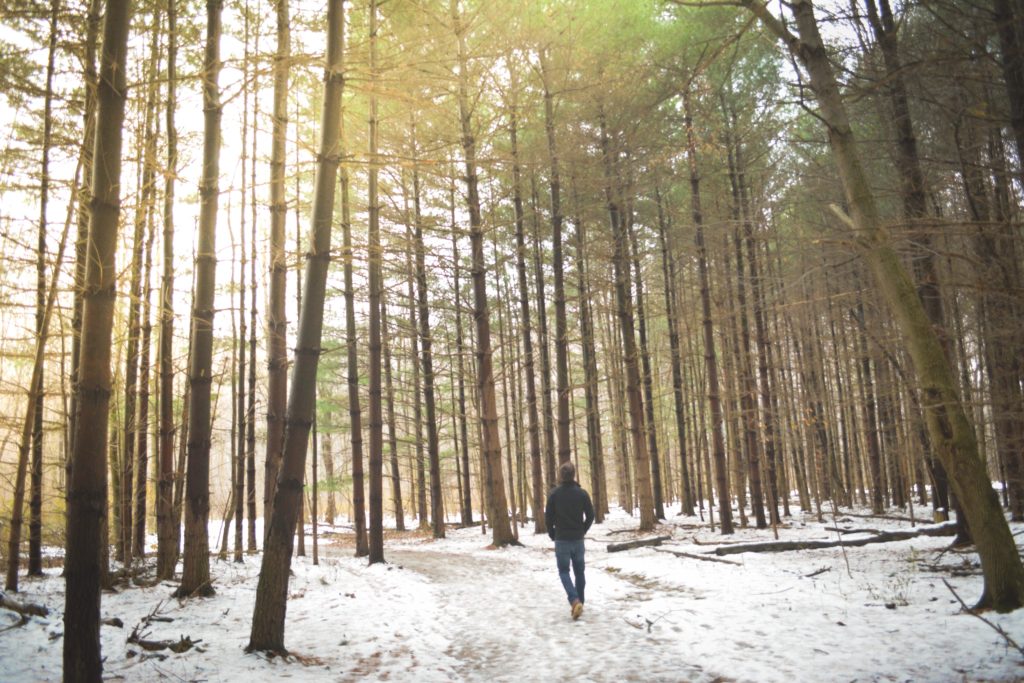
Walk with me? Photo by Hannah Donze on Unsplash.
Ram Dass’ quote reminds me no one is supposed to take away my pain and sorrow because we are all humans. We are not machines. We can’t write a code that says, “We will never feel sad ever.” Furthermore, it’s no one’s responsibility to make me feel better. We are fellow companions on this path. We are pilgrims going on a pilgrimage. There may be times I sprain my ankle and have to rely on others for help, but the responsibility for forward motion is still mine, and the responsibility to move through my emotions is still mine.
My spiritual teacher says, “[A] true society is like a group of pilgrims who attain a deep psychic affinity while traveling together, which helps them solve all the problems in their individual and social lives.”
That’s us. A group of pilgrims traveling this rocky path together. I’m speaking in metaphors a lot in this post, but what I’m trying to get at is it’s not my responsibility to solve or fix someone’s emotional state, or vice versa. I don’t have all the answers, or any of the answers, really. I can’t tell a person how to live their life or what they should do to feel better. All I can do is say, “I hear you and I’m beside you. I’m walking this path with you as a companion.” And that’s it. We’ll address problems as they arise – blisters, sprained ankles, etc. – but the emotional states? I’ll be with you during them, but the tears are still yours to cry and the steps are still yours to walk. And maybe that’s enough.
I dream of a world where we recognize we are all pilgrims on a pilgrimage. A world where we sit with each other when we’re in pain. A world where we realize all we can do is be there for each other. A world where we remember we’re all just walking each other home.
Another world is not only possible, it’s probable.
I would say the prevailing sentiment for me right now is disillusionment. I’m seeing things as they are, not how I’d like them to be. I read an article the other day about the presence of white supremacists growing faster on twitter than ISIS. The number of accounts has grown by 600 percent since 2012. What’s interesting is instead of feeling scared, I feel relieved. I think a part of me knew this was coming, expected it, and perhaps even prepared for it.
As I’ve perused news stories about the rise of white supremacy and neo-Nazis, a voice clearly said, “You were made for these times.” I’m not alone in this. We were all made for these times. Every experience we’ve had to date has prepared us for this precise moment and for all the moments to come. No experience is wasted.
When I think about my experiences, I see how my outlook, my loving nature, and my empathy are useful for today’s world.
I grew up in a household that practiced yoga and meditation and was taught from an early age to find similarities over differences. It wasn’t unusual for a person from a far-off land to stay with us. Hearing different accents was normal. I won’t say I’m completely free of bias and prejudice, but I will say I make an effort to work on it. I didn’t realize how valuable that was until after this election.
My spiritual teacher says, “Those whose preachings encourage discriminatory feelings are the worst enemies of humanity. These are the people who in every age … have caused blood to flow. And even today these vested interests are still trying to perpetrate discrimination in a thousand and one ways.”
He obviously has some strong words about those who want to encourage division. Instead, he advocates seeing everyone as a expression of the divine, something far easier said than done. A way for me to practice that is empathy. To recognize we are all human beings trying to meet our needs. I may not agree with the strategies to meet those needs, but I can see we all want the same things.
Audrey Hepburn said, “Nothing is more important than empathy for another human being’s suffering. Nothing. Not a career, not wealth, not intelligence, certainly not status. We have to feel for one another if we’re going to survive with dignity.”
Surviving with dignity means building bridges, not walls. It’s important for us to create a “we” space, not an “us versus them,” space. “Us versus them” means hate, it means discrimination, it means fear, it means cruelty. I do not hate those who hate me. I do not hate those who hate others. Hate only breeds more hate and more division. Instead, in these challenging times I’m choosing to see other people as human beings, worthy of love and respect. I will fight tooth and nail against policies and practices that harm others, but I will not do so with hate in my heart because my experiences do not allow me to do that. I was made for these times. We all were.
I dream of a world where we realize we were made for these times. A world where we realize we all have unique talents and skills that may be put to use in service of others. A world where we understand each experience prepares us for another. A world where we realize we were born for this.
Another world is not only possible, it’s probable.
More and more I’m noticing that what we all want is to be seen, heard, and understood. We want people to empathize with us, to recognize what we’re going through and trying to express.
This week I had some angry interactions with others. They became upset over something that involved me, but wasn’t really about me. My first reaction when someone explodes in my direction is to cower, to take it in. My next reaction is to become angry in return, to meet anger with anger. Finally, I turn to empathy and say, “I hear what you’re saying. It sounds like you feel _____.” When I’m able to get to that empathic place, the person cools down and says, “You’re right, that’s exactly how I feel,” and then we’re able to have an honest conversation. The honest conversation is where the solutions come from.
A friend told me recently the hardest part about relationships for her is going deeper when she’s wounded. That instead of running away from her partner when he gets upset, or trying to hurt him back, is getting to that empathic, vulnerable place. I found that to be true for me too, especially when I’d much rather throttle the person’s neck. I’m not saying anger doesn’t have its place – it absolutely does – but sometimes its better to express anger to a neutral third party. Instead of escalating a heated situation, it’s often better to call up someone else and vent.
I find this to be true for other emotions too. When I’m sad, sometimes I want someone to tell me things will be OK, or to help me problem solve, but oftentimes I’d rather someone said, “I hear you. That sucks,” and then let me cry. I usually know what I need to do so I’d much rather have support than advice.
I first wrote about empathic listening or nonviolent communication in 2009. I’ve been using some of the methods I picked up ever since and find it just as inspiring now as I did then.
What I find so encouraging about empathic listening is its potential for huge and lasting change. It’s been used to reduce violence in hospitals and curb bullying. Plus Marshall Rosenberg, the founder of nonviolent communication, negotiated peace deals with terrorists using the method. I can’t help but wonder how much of the violence in the world is because people are not getting their needs met? How often are we resorting to angry words and louder voices in an effort to get people to understand where we’re coming from? Not everything can be solved with empathic listening of course, but I honestly think some problems can.
I dream of a world where we make an effort to see, hear, and understand each other better. A world where instead of firing off an angry invective, we try to access an empathic place. A world where we bring more love into our conversations, especially the hard ones. A world where we can honestly say we do hear one another.
Another world is not only possible, it’s probable.
